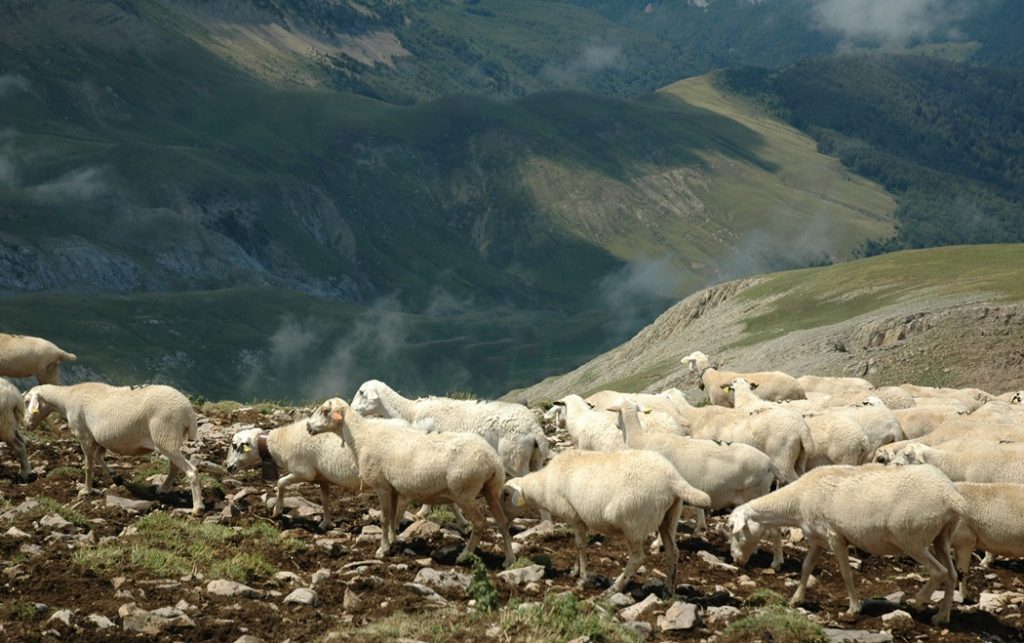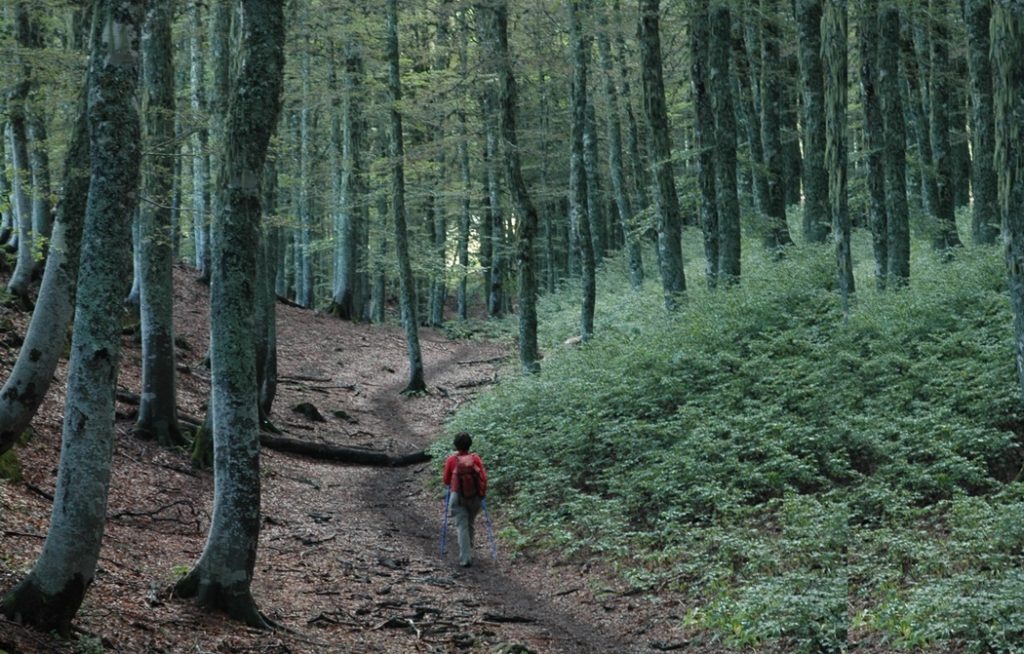Life Pyrenees4Clima and the challenge of adapting the Pyrenees to climate change with a transboundary approach
The new project Life Pyrenees4Clima aims at implementing the Pyrenees Climate Change Strategy (EPiCC), the first European initiative created for a cross-border mountain bioregion, and in which CREAF has been involved. The Strategy aims at cooperating to achieve adaptation to climate change, integrating mitigation actions and focusing on the climate, the mountain economy, the population and the territory. One of its values is the active participation of the seven territories of the Working Community of the Pyrenees: Andorra, Aragon, Catalonia, the Basque Country, New Aquitaine and Occitania. Thus, governance between sectors and regions is a cornerstone of the project.
Life Pyrenees4Clima aims at implementing the Pyrenees Climate Change Strategy, the first European initiative specifically conceived for a cross-border mountain bioregion.
Resilience to climate change in the Pyrenees is the focus of the project, which involves CREAF together with 46 organizations from Andorra, Spain and France. The initiative focuses on identifying measures for adapting to global warming that can be applied to the agroforestry, forestry and mountain areas of this mountain range as a whole. The strong desire for cross-border action and the scale of the objectives mean that the partners also include more than 40 external beneficiary entities: research centers, universities, public companies, European Groupings of Territorial Cooperation, associations, companies and foundations, among others.
CREAF is represented by Bernat Claramunt, Diana Pascual, Eduard Pla and Javier Retana, who are in charge of the sections on resilient mountain economy, promoting agroforestry and pastoral systems and training and raising awareness among key people and inhabitants of the Pyrenees. In addition, they are in charge of innovative pilot experiences to improve the valorization and adaptation of Pyrenean forests to climate change. Among other responsibilities, CREAF will develop a tool to support decision-making and management, and will promote citizen science initiatives.

According to Eduard Pla, "Pyrenees4Clima is the flagship of the Pyrenees Climate Change Strategy’s deployment: it will act from the Mediterranean to the Atlantic and along the northern and southern slopes of this mountain range". On the other hand, Diana Pascual connects this project with Life MIDMACC and highlights "the importance of recovering pastoral production systems, giving value and adapting Pyrenean forests to climate change and recovering primary agro-silvo-pastoral products". Pascual also stresses that CREAF will work side by side "with more than 50 organizations in the Pyrenees to develop the strategy, which we will help to design and build".
A vulnerable mountain bioregion
The Pyrenees is a mountain bioregion that is particularly sensitive to climate change, due to the wide variety of ecosystems it hosts and where the average annual temperature is rising rapidly.
The Pyrenees is a mountain bioregion that is particularly sensitive to the effects of climate change, due to the wide variety of ecosystems it hosts, and where the average annual temperature is rising rapidly. In most mountainous areas, climate change has major impacts on biophysical and socioeconomic systems, with effects on flora, fauna, water resources, energy, agro-pastoralism, forests, protected natural areas, tourism, mountain economy and governance. Based on this reality, the approach of the Life Pyrenees4Clima project aims to achieve a territory resilient to the effects of climate change, taking into account two differential facts: the mountainous nature of the territory and the cross-border approach.

Collaboration between the northern and southern slopes
The project organization pays particular attention to teamwork between representatives from the north and south of this area. Some of the collaborations are between the Meteorological Service of Catalonia and MeteoFrance, the Pyrenean Institute of Ecology-CSIC and the Botanical Conservatory of the Pyrenees, the Agence des Pyrénées and CREAF, the Catalan Office of Climate Change and the Occitanie region, as well as the EGTC Pyrénées-Pyrénées, the Réseau Pyrénées Vivantes and the Autonomous University of Barcelona, among others.
Life Pyrenees4Clima is supported by the European Union, is led by the Pyrenees Climate Change Observatory - linked to the Pyrenees Working Community -, has a duration of more than 7 years and will be launched in autumn 2023.
The LIFE Program is the only financial instrument of the European Union dedicated exclusively to the environment and climate action, and is one of the main contributors to the European Green Deal. Pyrenees4Clima responds to the program of integrated strategic projects, which monitors, develops and implements climate change adaptation and mitigation strategies.







